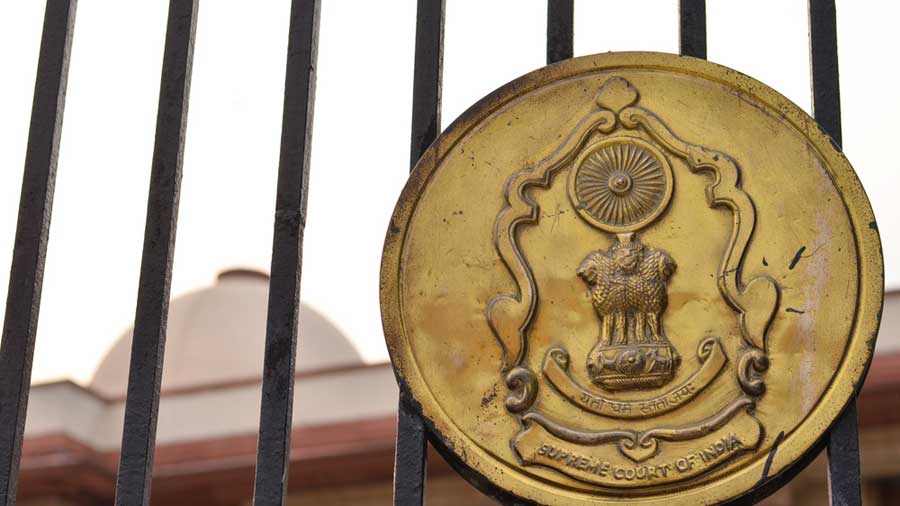The Supreme Court on Wednesday took note of the Centre's guidelines and said posters and signages should not be affixed by authorities outside homes of COVID-19 patients in the country.
The apex court, however, added that such posters can be affixed only in specific cases when the competent authority issues specific directions under the Disaster Management Act.
A bench headed by Justice Ashok Bhushan said this in its verdict on a plea seeking directions to do away with the practice of pasting posters outside homes of those infected by coronavirus.
The bench, also comprising justices R S Reddy and M R Shah, disposed of the plea, saying the Centre has already issued guidelines, and therefore, states and union territories should not affix such posters.
The Centre had earlier told the top court that its guidelines do not contain any instructions regarding affixing posters and signages outside homes of COVID-19 patients, and there cannot be any stigma attached to it.
The bench had reserved its judgement on the plea on December 3.
Solicitor General Tushar Mehta had on December 3 referred to the affidavit filed in the apex court by the Ministry of Health and Family Welfare (MoHFW) and told the bench that guidelines do not require any such affixation of posters.
The counsel appearing for petitioner Kush Kalra had told the apex court that there are no such instructions in the guidelines to affix posters outside the home of those found COVID positive but the reality is very different.
While hearing the matter on December 1, the top court had observed that once posters or signages are pasted outside the homes of COVID patients, the people affected are treated as "untouchables", reflecting a different "ground reality".
In its affidavit, the ministry had said that its guidelines do not contain any instructions or guidance regarding affixing of posters or other signage outside the residences of those found COVID positive.
Mehta had told the bench that the Centre has not prescribed this practice and some states might be pursuing it on their own to prevent the spread of the virus.
The apex court had earlier asked the Centre to consider issuing guidelines to do away with the practice of pasting posters outside the homes of COVID-19 patients.
It had directed so without issuing any formal notice to the Centre on Kalra's plea seeking framing of guidelines in this regard.
In its affidavit, the ministry has said that all states have been intimated to this effect that the MoHFW has not issued any such guideline to identify Covid-19 patients.
The Central government, through MoHFW has already communicated to the Additional Chief Secretaries ...secretaries (Health) of all the states and UTs pointing it out that the MoHFW guidelines do not contain any instructions or guidance regarding affixing of posters or other signage outside the residences of those found COVID-19 positive, the affidavit said.
On November 3, the Delhi government had told the high court that it has instructed all its officials not to paste posters outside homes of Covid-19 positive persons or those in home isolation; and the ones pasted have been ordered to be removed.
Kalra, in his plea before the high court, had contended that names of persons who tested positive for COVID-19 were being freely circulated to the Resident Welfare Associations and on WhatsApp groups and this was "leading to stigmatisation and drawing of unnecessary attention".











